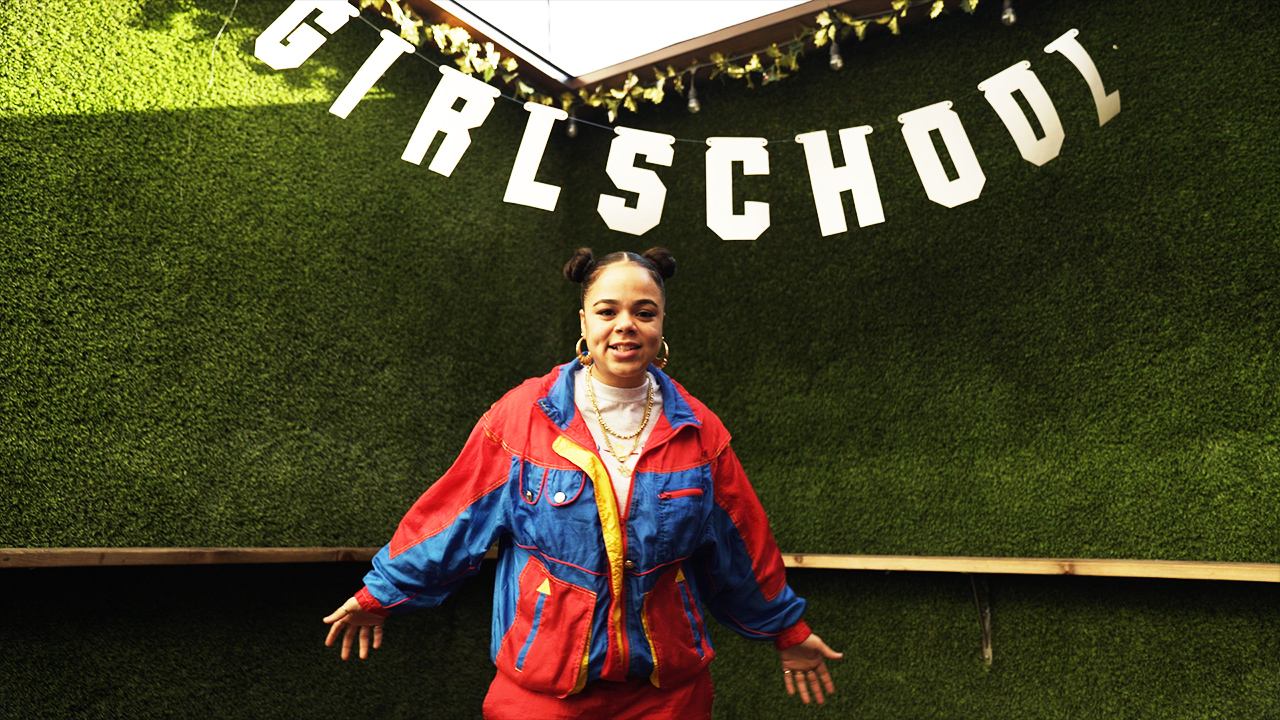There’s an argument that tends to worm its way into conversations about equal gender representation in the music industry. It’s that the powers-that-be would love more talented, awesome female acts, but that these acts just don’t exist. This tired, lazy excuse assumes that because executives and festival bookers aren’t seeing as many female voices in the mainstream, that they aren’t there, or at least, that the talent isn’t. Except, of course, there aren’t as many women rockers in the mainstream because of these attitudes.
All of which makes it incredibly satisfying to watch the woman-driven music festival, Girlschool, smash this argument into a million pieces.
The festival, started in 2016, by rocker Anna Bulbrook, is a joyful explosion of talent and inclusivity that gives a platform to female-identified or non-binary artists whose voices have oft been excluded from the music world. Bulbrook started the collective after touring with multiple bands (both as a founder/frontwoman and band member). While performing, she continually saw the same few women at male-dominated festivals. She was frustrated by the lack of representation in the industry, and it caused her to want to start something that would highlight all of the kick-ass women who she knew existed, but weren’t being given the platform to shine.
The plan was to give women back the power and agency to produce their own sounds, a power that’s often stripped away.
“The more bold, bad bitches in the room, the more power we all have,” artist Shirley Manson tells rapper Desi Mo the Dogg, representing Uproxx at the event.

The result is an insanely fun, talent-filled festival that’s rapidly growing as more and more people realize its unique ability to introduce them to talented female-driven acts. By bringing all of these talented women together and showcasing them, Girlschool is propelling the conversation of inclusivity forward. That excites Bulbrook because it represents the possibility of the industry changing to include more women’s perspectives.
“I think it’s really exciting to think about what would music sound like if it were written by more women, produced by more women,” she says. “What would a popular song sound like if someone gave women budgets to make that happen?”
Girlschool strives to give women the platform and resources to make and distribute their art. Because if they can empower women to feel confident in their place in the music world, show them that they can (and should be) in every aspect of the medium (whether they’re producing, behind a soundboard, or rocking a stage), then there might be real change in the industry.
“You’re a good rapper for a girl,” Desi Mo says of the frustrating “compliment” people give her. But watching the festival, and all the powerful women on stage helps her to reappropriate the intended slight that being a woman means you’re a lesser artist. “If this is what doing it like a girl is,” she says, “then I’m going to be proud to do it as a girl.”






